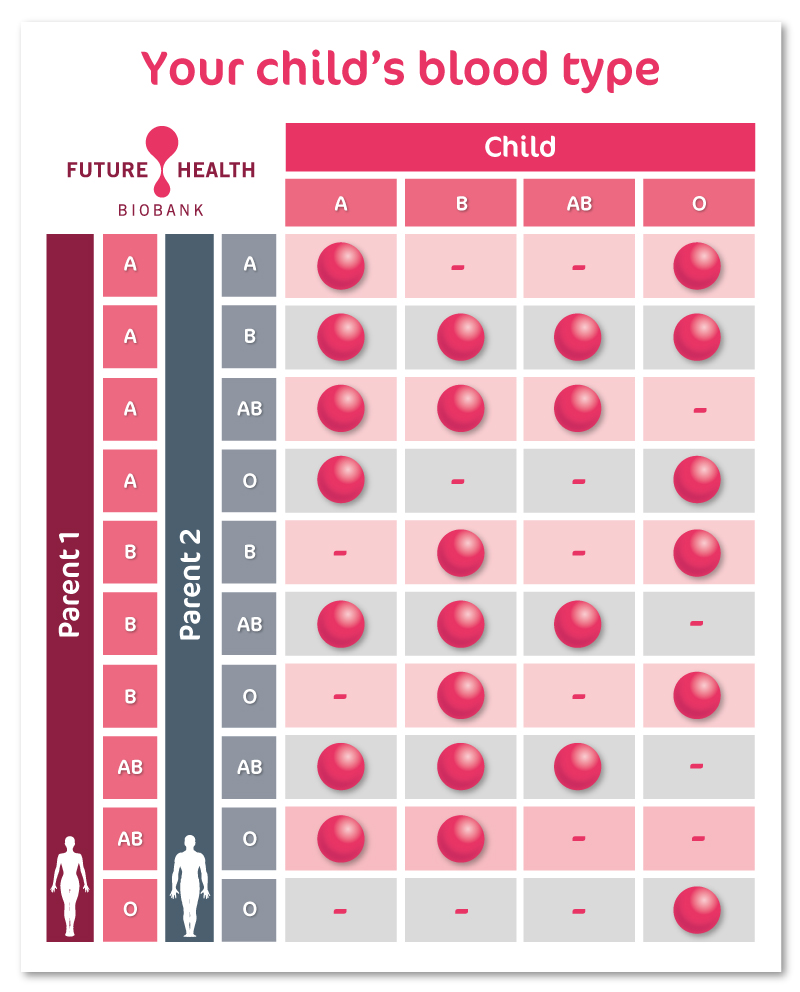
The importance of knowing your baby’s blood type Future Health Biobank
The ABO system has four major blood types: A, B, AB, and O. Blood types are further categorized by the presence (positive or +) or absence (negative or -) of the Rh (D) antigen on the surface of their red blood cells, also known as the Rh factor. This produces the eight major blood types. A and B antigens are sugars.
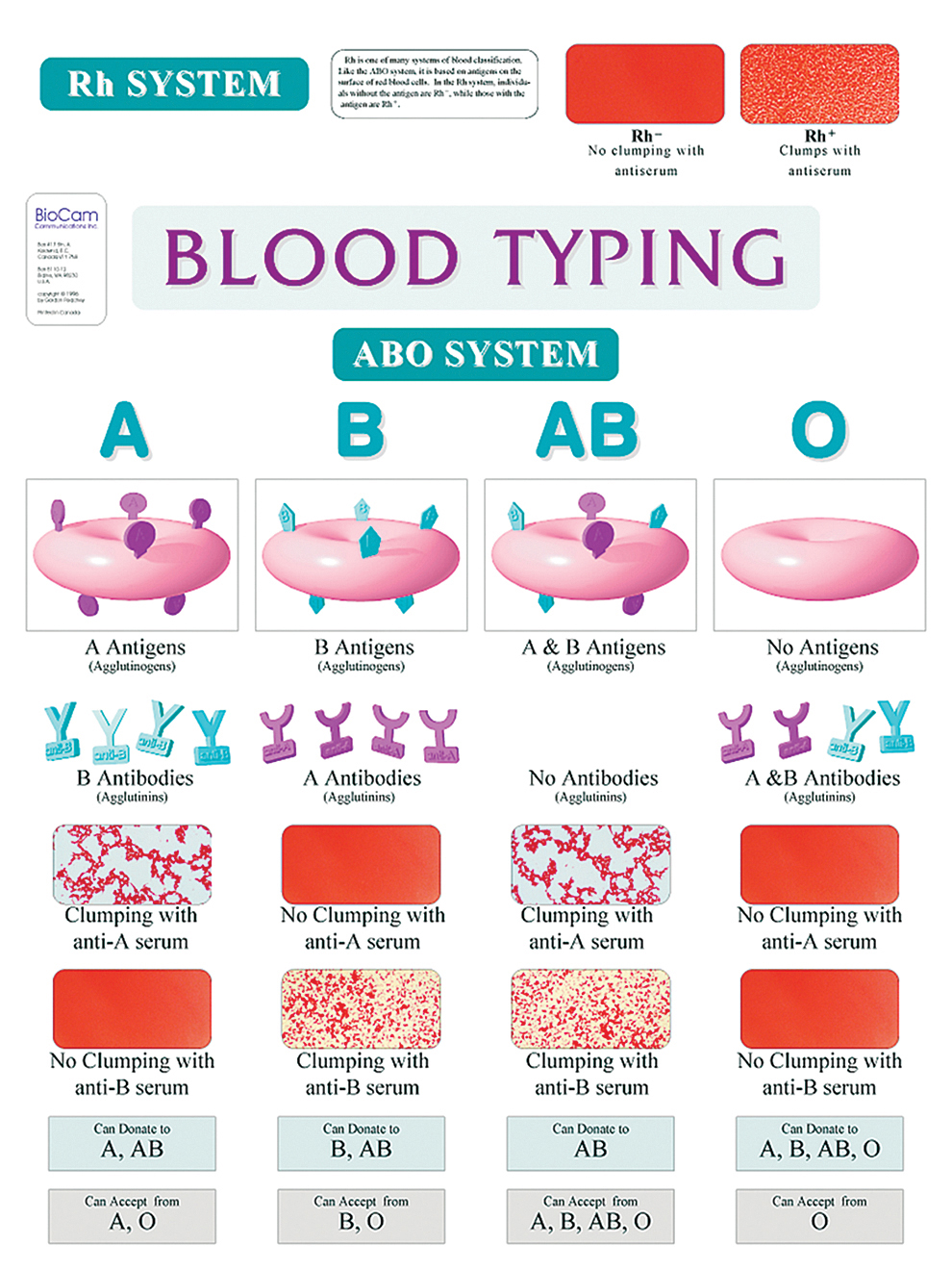
ABO Blood Typing Wall Chart Flinn Scientific
Most common types Most rare types Summary Blood types are a classification of blood based on the antigens present on red blood cells. In the United States, O-positive is the most common.
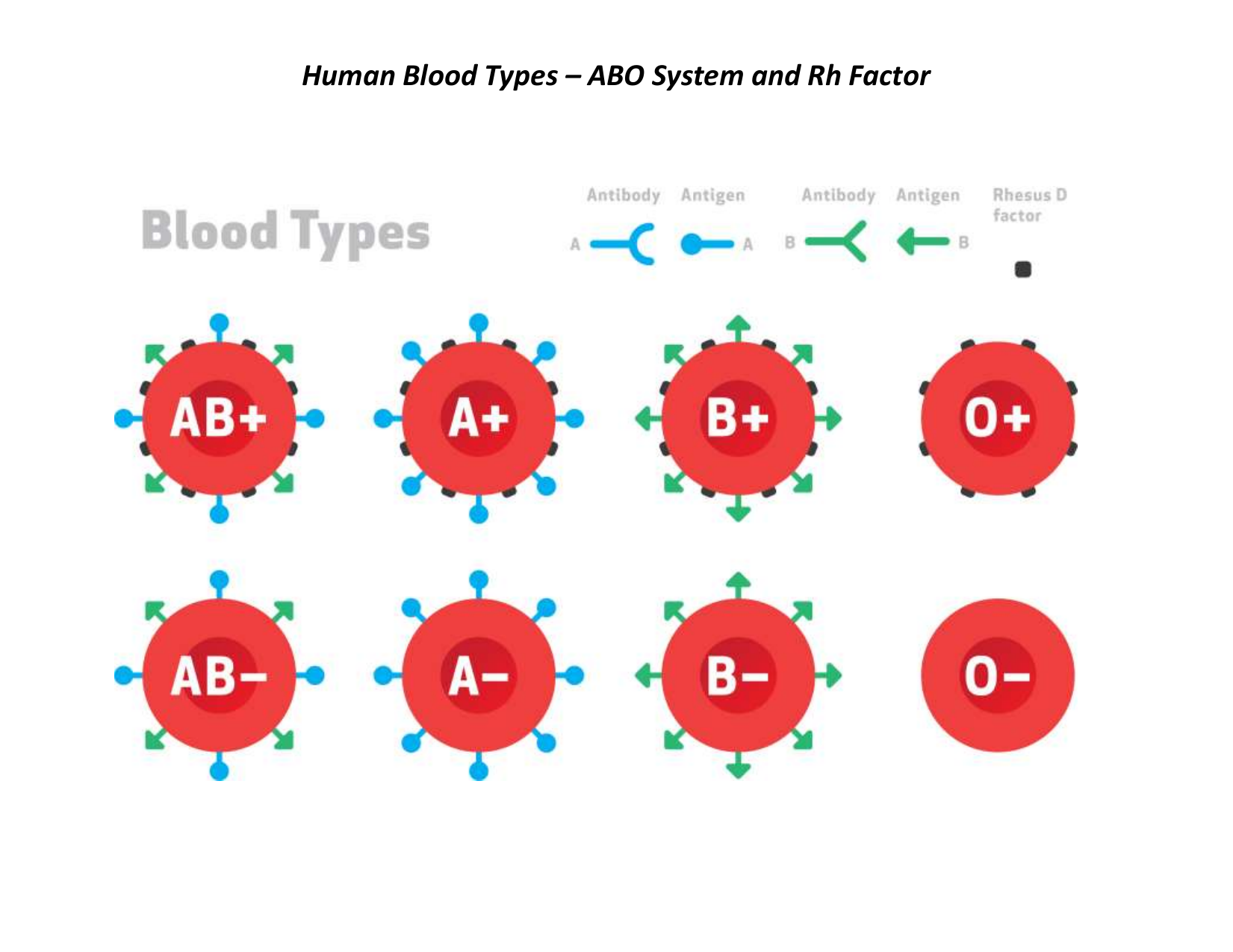
Chart 2018 Human Blood Types
March 18, 2022 Rare events Many people from all around the world ask: "How is blood type inherited? And do exceptions ever happen?" Typical blood type inheritance In the vast majority of cases, blood type follows a predictable inheritance pattern. Here are a child's possible blood types for any two parents:
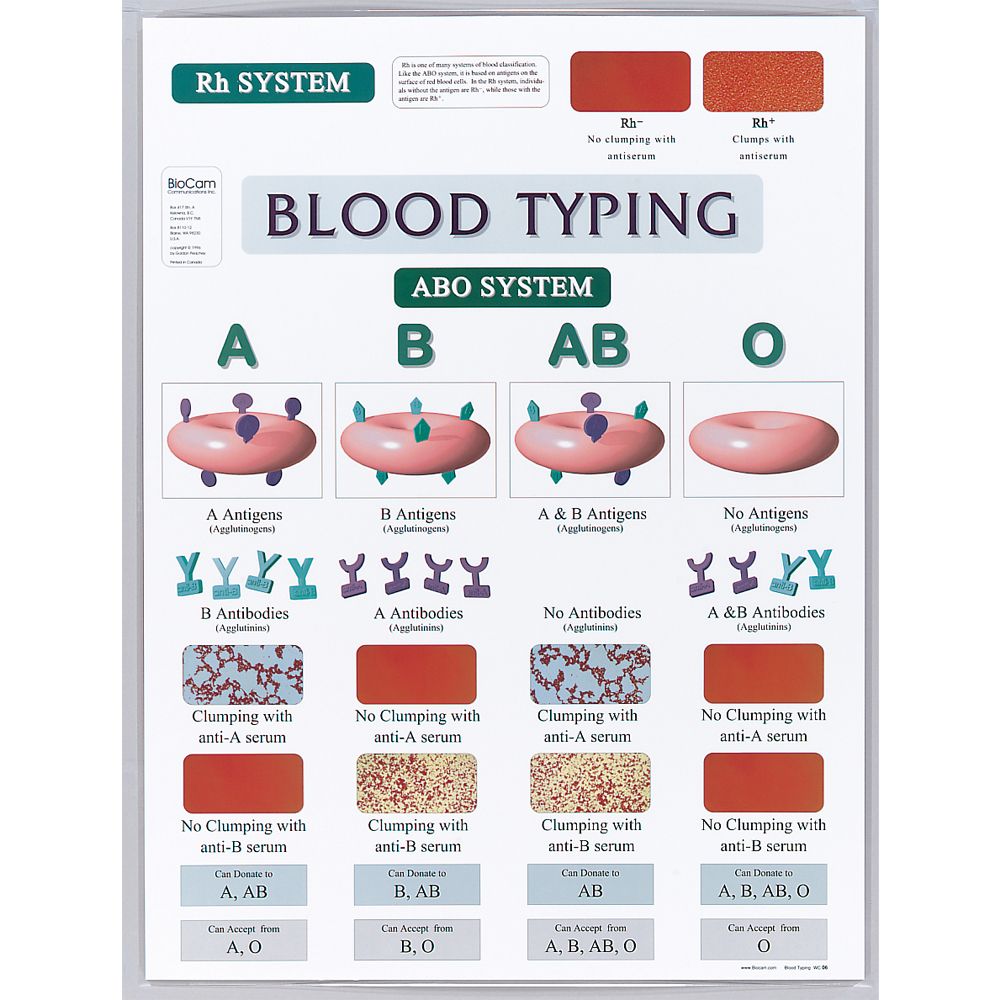
Blood Typing Chart Carolina Biological Supply
There are four different groups of blood types: A, B, AB, and O. The presence or absence of two different antigens and antibodies is what determines each type. Within each group, each blood.
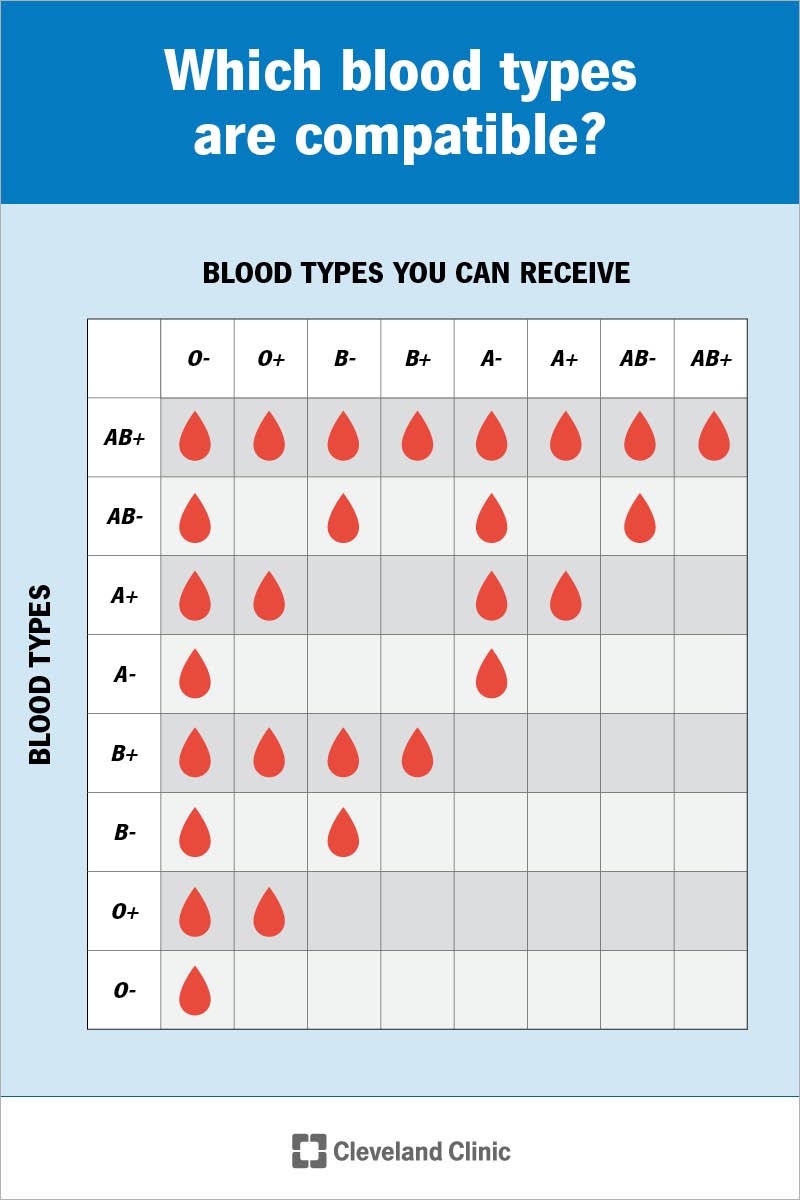
Blood Types What They Are and Mean for Your Health
By drawing blood. A person can identify their blood type at home using a rapid blood typing kit. Using the kit requires a person to prick a finger with a needle. The kit comes with a card that.
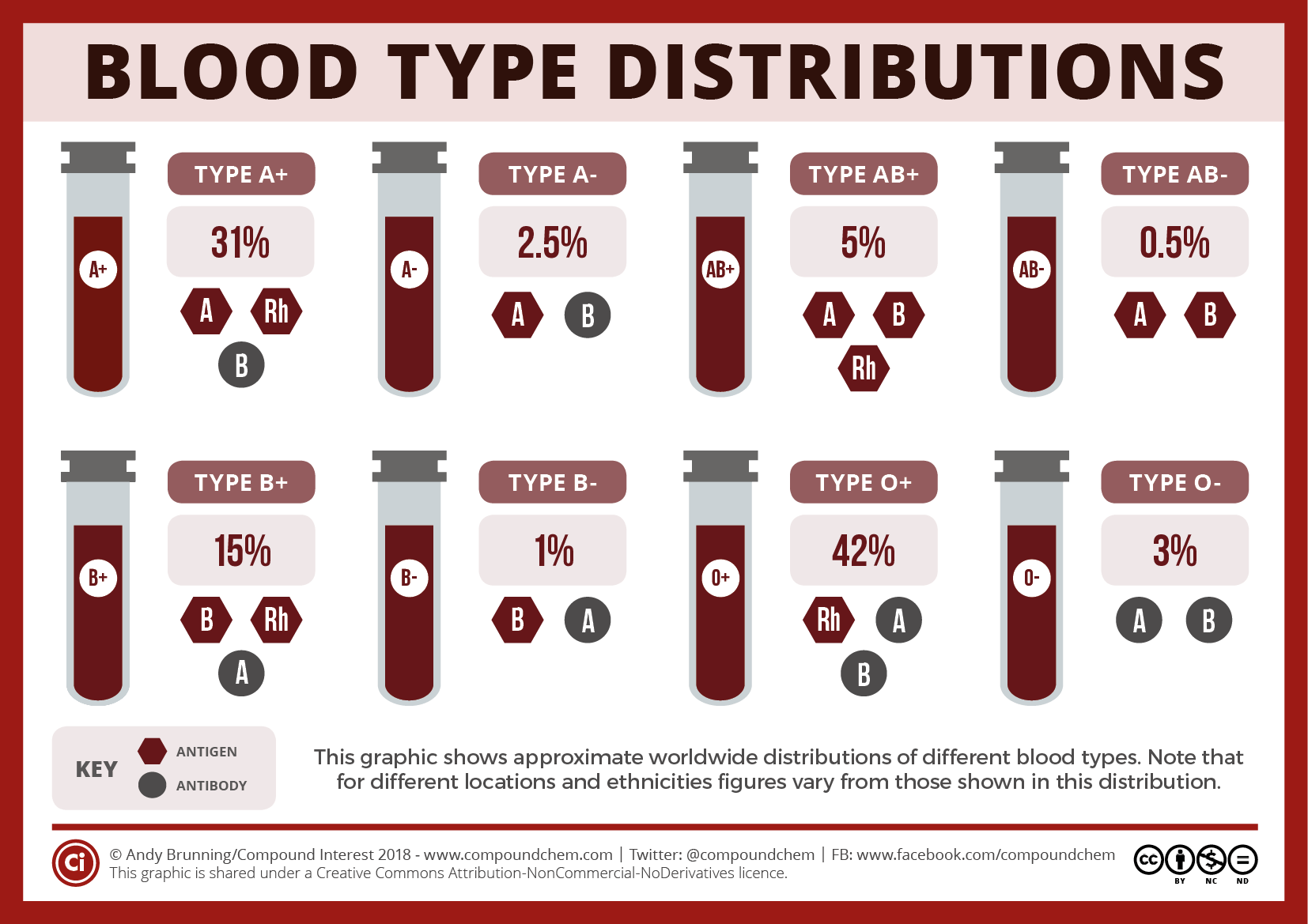
National Blood Donor Month Blood type compatibilities Compound Interest
What blood type am I? There are four main groups of blood: A, B, AB, and 0. Each of them contains different antigens (such as carbohydrates or proteins) on the membrane of red blood cells.

Chart Of Blood Types In Drops Medical And Healthcare Infographic Stock Illustration Download
The eight common blood types: A+, A-, B+, B-, O+, O-, AB+, and AB-. In the United States, O+ is the most common blood type, found in about 37% of the population, followed by A+ in around 36%.

Who came up with blood types and what do they mean? The Dish on Science
A blood type (also known as a blood group) is a classification of blood, based on the presence and absence of antibodies and inherited antigenic substances on the surface of red blood cells (RBCs). These antigens may be proteins, carbohydrates, glycoproteins, or glycolipids, depending on the blood group system.
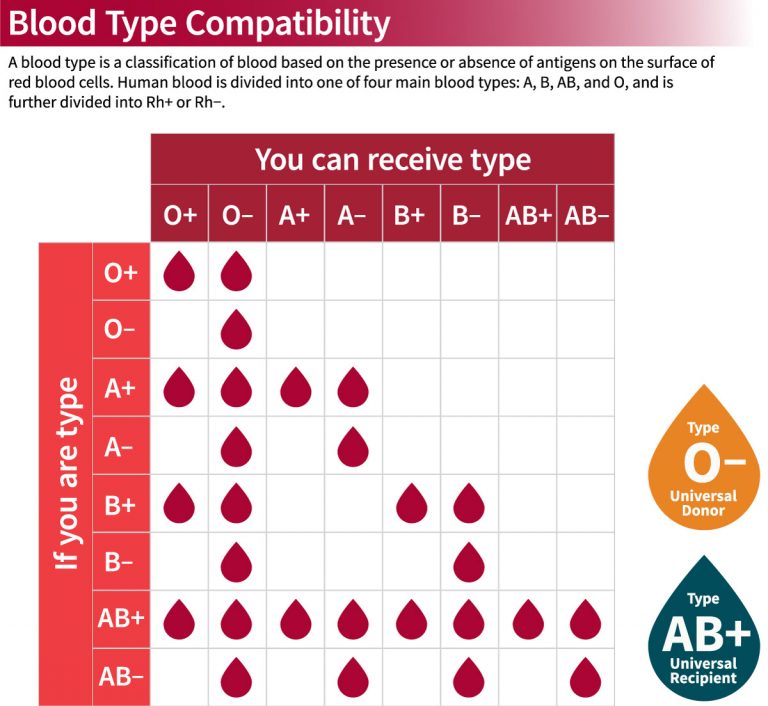
Blood Types — Stanford Blood Center
PLASMA A RED CELLS Group A has only the A antigen on red cells (and B antibody in the plasma) Blood Types and Transfusion There are very specific ways in which blood types must be matched for a safe transfusion. The right blood transfusion can mean the difference between life and death.

Infographic What's Your Blood Type? Nursing Pinterest Blood types, Infographic and What s
There are four major categories within the ABO group: A, B, O, and AB. Within these groups, there are a further eight blood types. Every 2 seconds, a person in the United States needs blood..
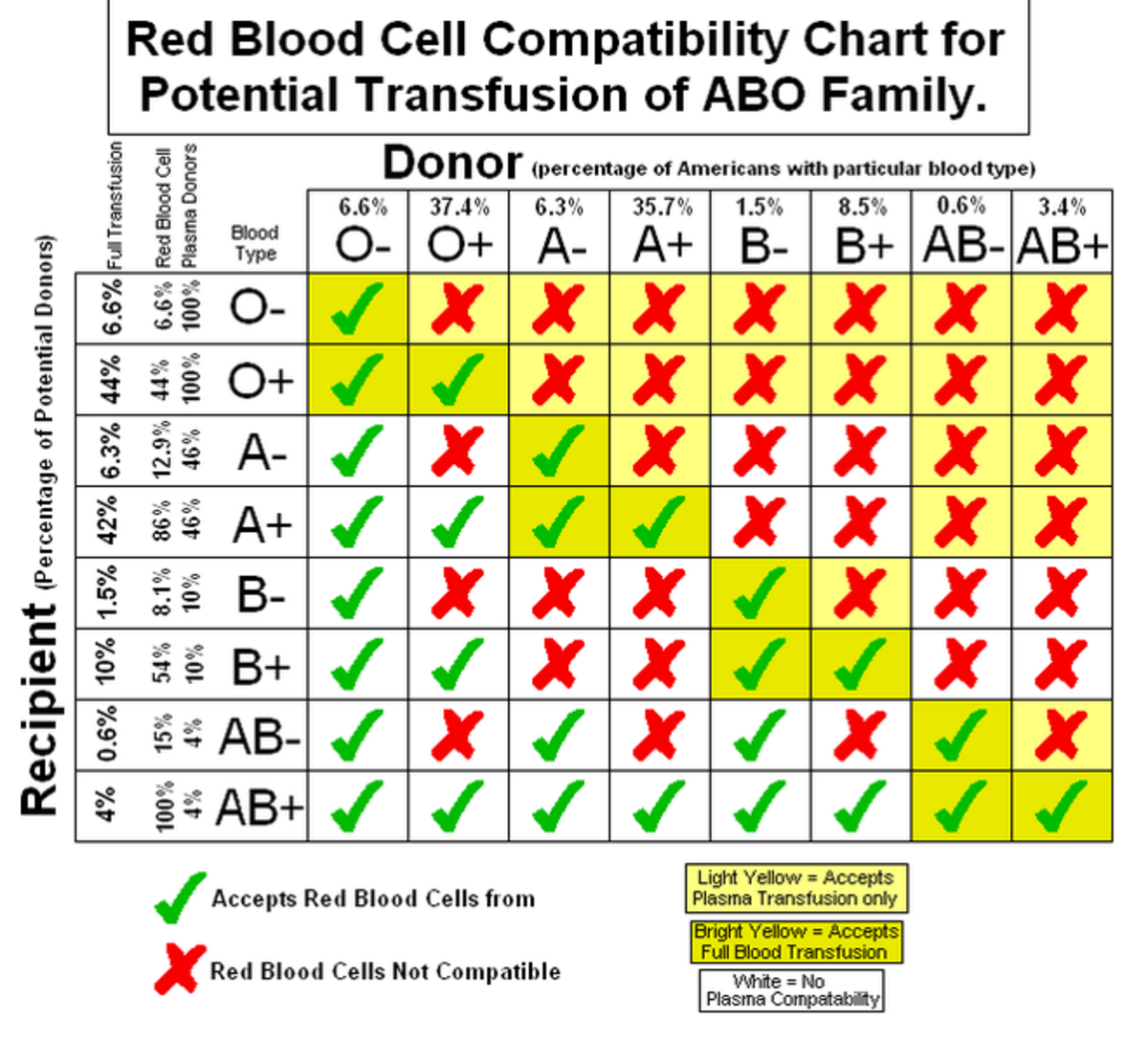
The Basics of Blood and Blood Typing Owlcation
The American Red Cross define a blood type as "rare" when it occurs in fewer than 1 in 1,000 people. Rhnull is the rarest of these. Having a rare blood type can make it difficult or even.

ABO Blood Group System Dr Robert Brody
Use Punnett Squares. Ask your biological parents for their blood type. If both your parents know their blood type, you can input their information into Punnett Squares or a blood type calculator to calculate what your blood type might be. While, in most cases, this method will only be enough to guess, knowing' your parents' blood types helps narrow down your options to a few distinct.
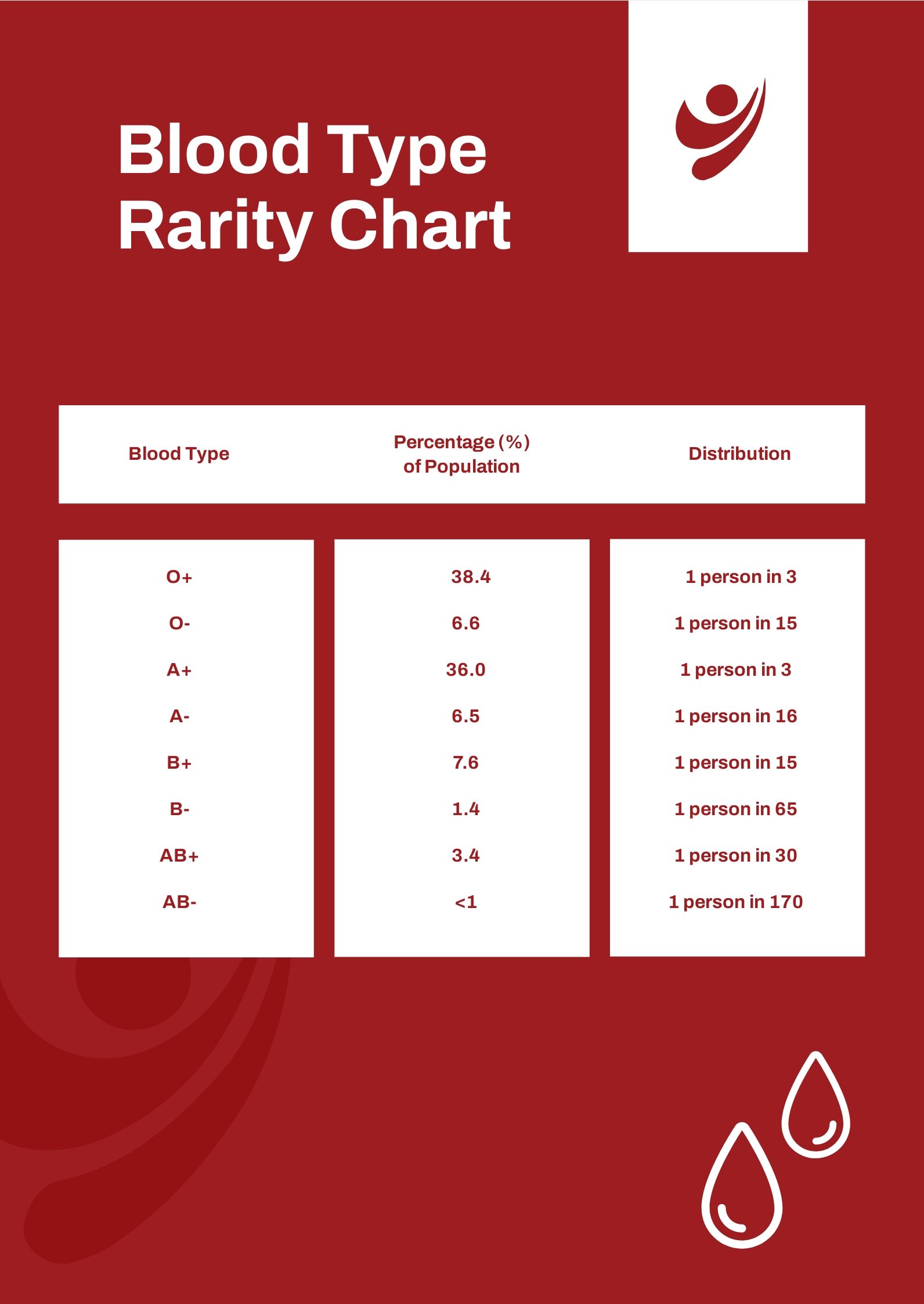
FREE Blood Type Chart Template Download in PDF, Illustrator
There are four major blood groups: A, B, AB and O. These are determined by the presence or absence of two antigens - A and B - on the surface of red blood cells. There is also a protein called the Rh factor, which can be either present (+) or absent (-), and this creates the eight most common blood types ( A+, A-, B+, B-, O+, O-, AB+, AB- ).
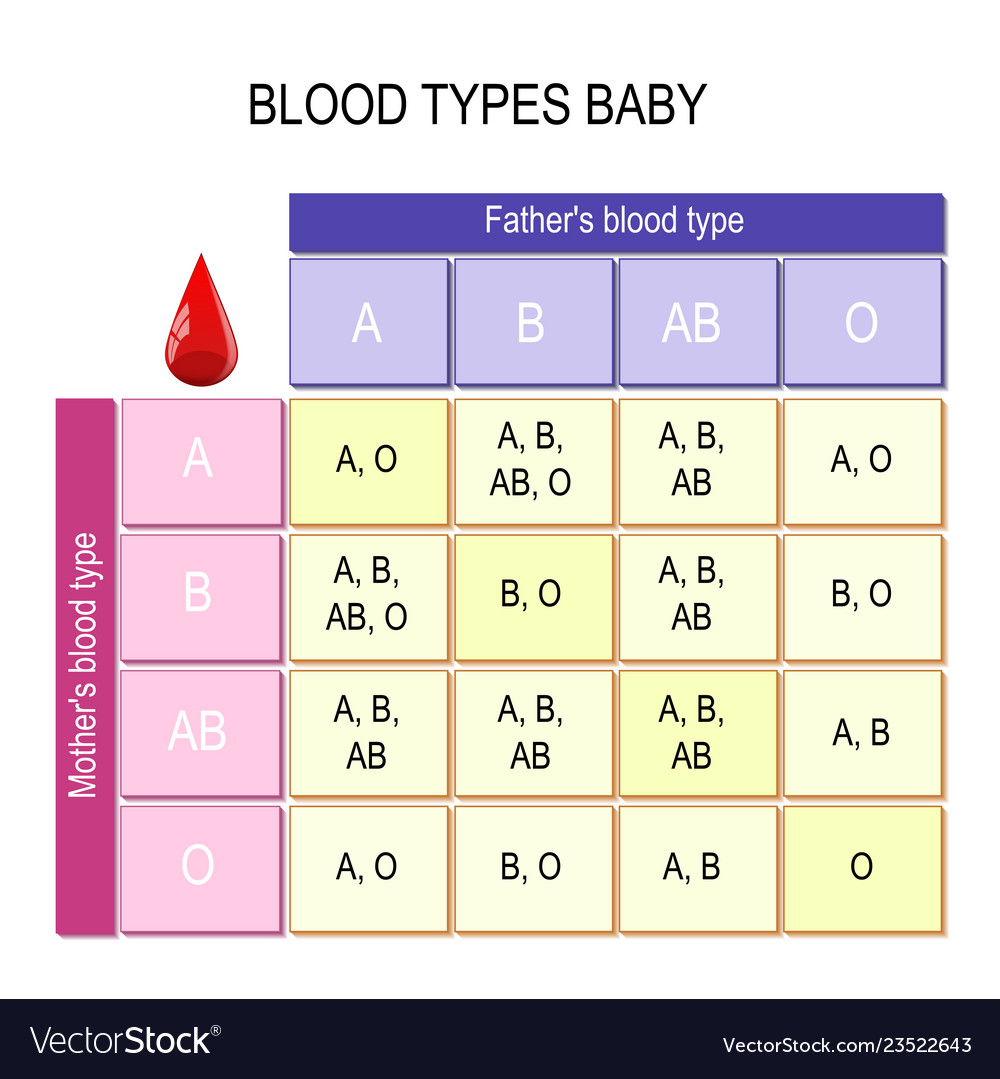
Blood types bachart Royalty Free Vector Image VectorStock
Blood types determine who you can give blood to and receive blood from. Which type of donation is best for you is determined by your blood type, as well as patient need. Read more to find out what makes your blood type special: How Rare Is My Type?* "The rarest blood type is the type that's not available when YOU need it!"
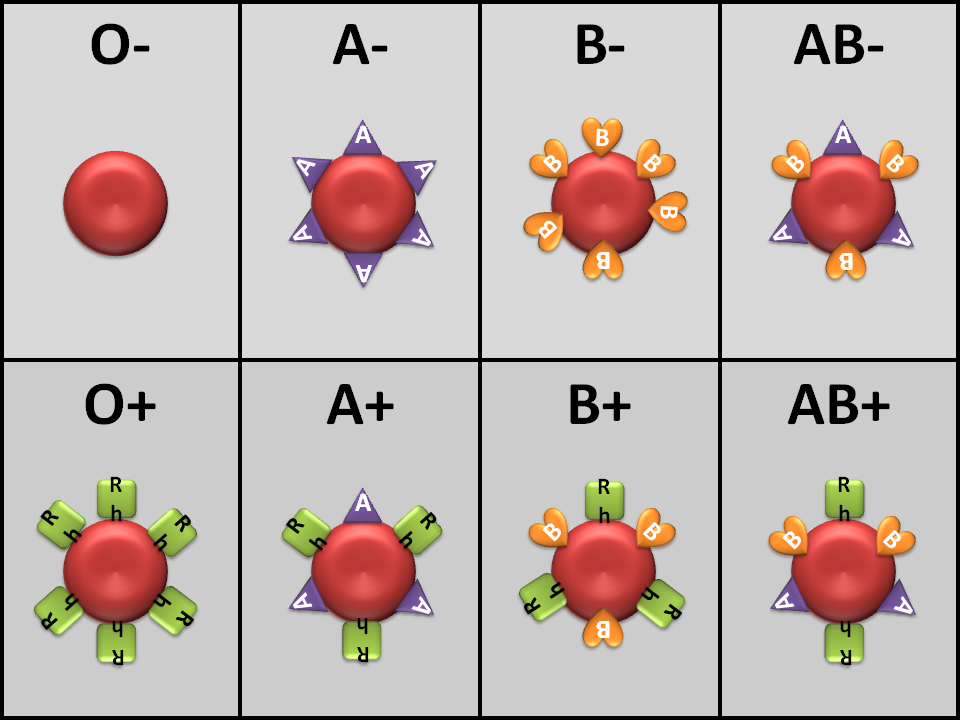
Rh BLOOD TYPE PLEASEPRESSRESET
A blood type is a classification system that allows healthcare providers to determine whether your blood is compatible or incompatible with someone else's blood. There are four main blood types: A, B, AB and O. Blood bank specialists determine your blood type based on whether you have antigen A or B on your red blood cells.
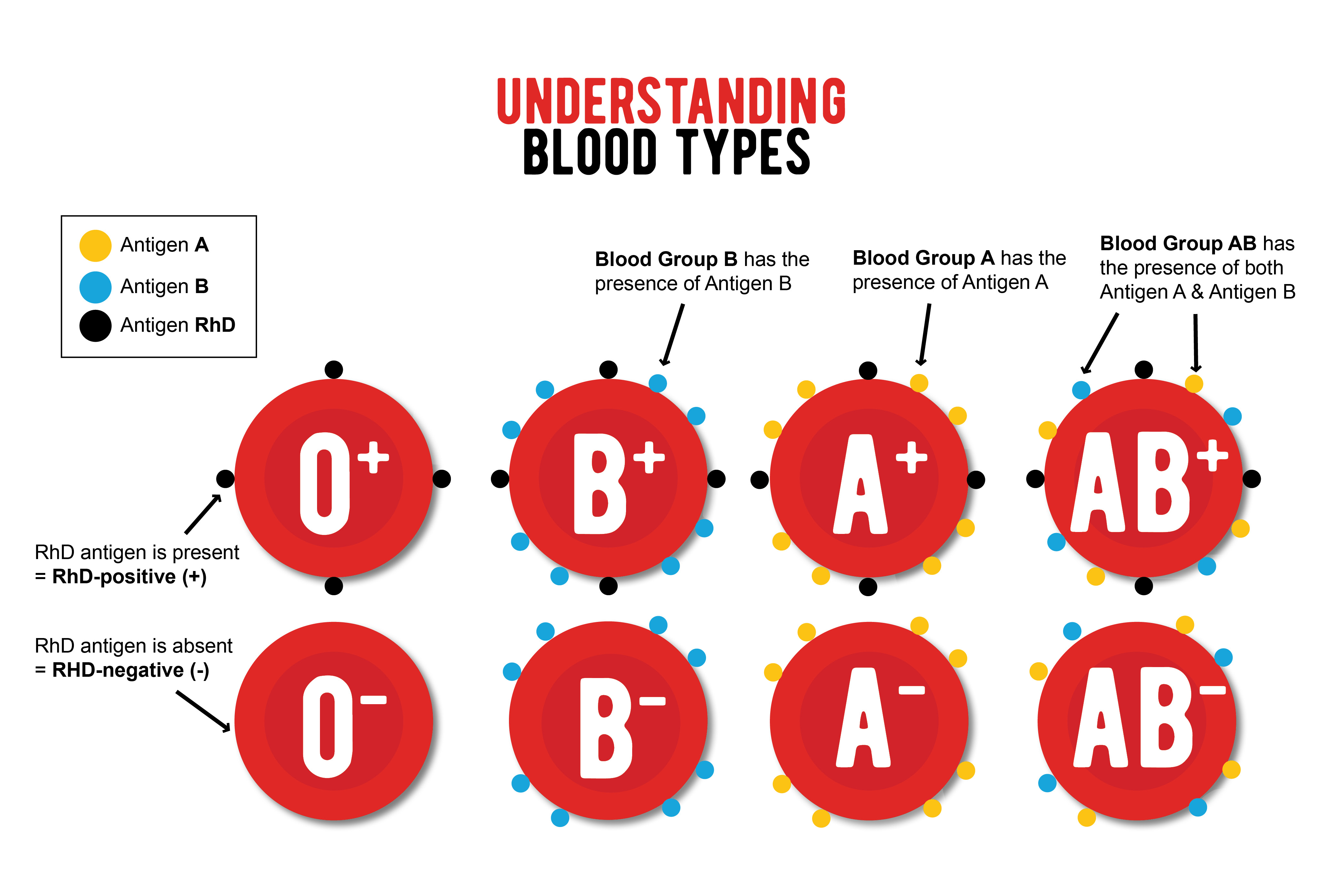
APositive Blood Type Linked to 45 Increased Risk of COVID19 Respiratory Failure Gowing Life
When identifying a patient's blood type, the Rh group is designated by adding the word positive or negative to the ABO type. For example, A positive (A +) means ABO group A blood with the Rh antigen present, and AB negative (AB −) means ABO group AB blood without the Rh antigen. The following chart summarizes the distribution of the ABO and.